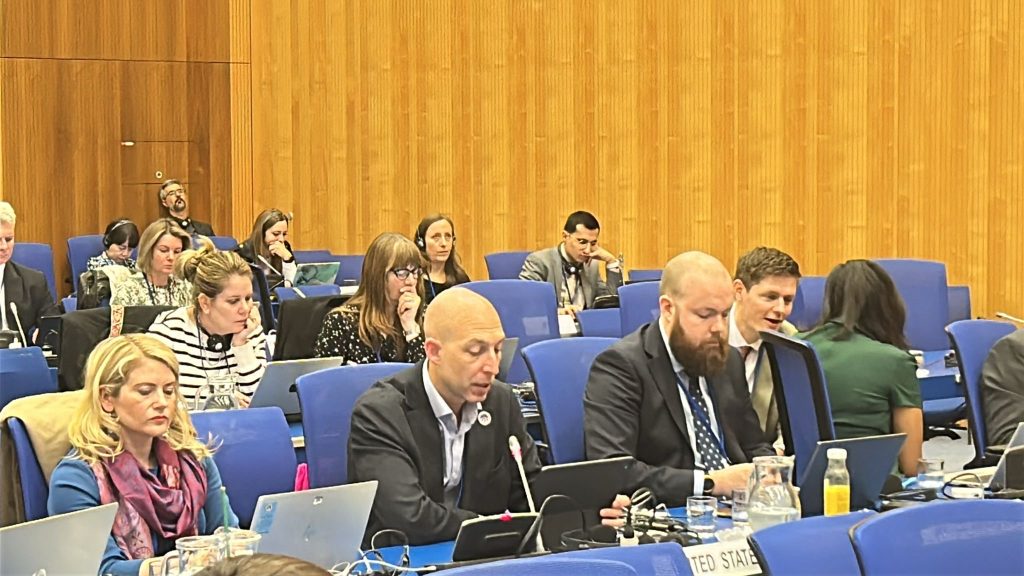OSC Delivers U.S. Statement on Space Traffic Management at UN COPUOS

One of the NOAA Office of Space Commerce’s most important jobs is advancing the U.S. commercial space sector’s global leadership.
In May 2025, the Office of Space Commerce joined the United States delegation at the United Nations Committee on the Peaceful Uses of Outer Space (COPUOS)’s Legal Subcommittee. There, OSC’s Director of Policy, Advocacy, and International Affairs, Gabriel Swiney, met with international partners to discuss how to open markets and provide predictability for the global space industry.
On May 9, Gabriel delivered the U.S. statement on space traffic management – highlighting the importance of space situational awareness cooperation for safe space operations.
Read the U.S. statement on the U.S. Mission to International Organizations in Vienna website.
“U.S. Statement as prepared for U.S. Representative Gabriel Swiney – Agenda Item 11 – General Exchange of Views on the Legal Aspects of Space Traffic Management”
“Chair, the number of objects in space is increasing rapidly, and reliable space situational awareness information and services are necessary to support global spaceflight safety and sustainability. This is necessary to enable the continued growth of a vibrant commercial space industry and ensure ongoing access to the many practical benefits provided by space systems. International coordination, including the continuing focus on the implementation of the Committee’s space debris mitigation and long-term sustainability guidelines, is critical in this regard, and this Subcommittee should continue to promote best practices, guidelines, and recommended principles that reflect operational realities.
The United States is committed to continuing its longstanding role as a global space situational awareness provider. The U.S. Department of Defense continues to share space situational awareness (SSA) information and services with satellite owners and operators worldwide, both governmental and non-governmental, and non-U.S. entities, to improve the safety of space flight. Much of this information is available on a free and publicly available website at “space-track.org.” As we transition this responsibility from the U.S. Department of Defense to the U.S. Department of Commerce, the new Traffic Coordination System for Space (or “TraCSS”) will leverage data from operators, governments, commercial, academic, and international sources. TraCSS will provide space situational awareness information and services to spacecraft operators around the world in support of spaceflight safety, and we anticipate it will begin operations later this year.
As the United States is developing TraCSS, many other nations and organizations around the world are also developing or improving their own space situational awareness capabilities. The United States is committed to maintaining an open and transparent system that enables global coordination with other space situational awareness providers and ensures reliable and efficient services to global spacecraft operators. This type of close coordination among independent national and regional SSA systems will be necessary to minimize the potential for spacecraft operators to receive conflicting information about potential conjunction events. It also lays the foundation for future space traffic coordination efforts, in which spacecraft operators should have consistent information on the likelihood and nature of potential conjunctions, allowing for a safe and efficient resolution of issues. This is articulated in the global vision for space situational awareness developed by the U.S. Department of Commerce, which is available to all delegations online. (https://www.space.commerce.gov/global-ssa-coordination-vision/)
We will continue to engage with international partners both bilaterally and multilaterally, including here at UNCOPUOS, to enable cooperation between national and regional space situational awareness systems in operation or development around the world. We hope that UNCOPUOS and its Subcommittees can find a home for these conversations as soon as possible.
Thank you, Chair.”